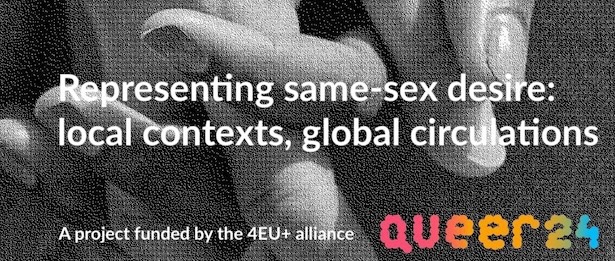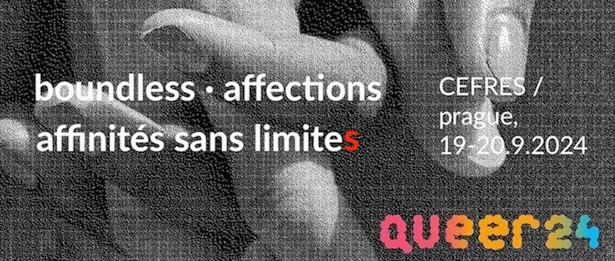The Translation of Humanities and Social Sciences
The colloquium aims to provide new insights into the dynamics of intellectual transfer and translation in Europe, exploring the distinctions and commonalities between Western and Central-Eastern Europe. With a focus on fostering lively discussion and facilitating the exchange of ideas and experiences, participants will endeavor to address the following inquiries:
Date: May 15th and 16th, 2025
Location: Institute of World Literature, Slovak Academy of Sciences, Bratislava, Slovakia
Organizers: Katarína Bednárová, Silvia Rybárová, Ján Živčák (Institute of World Literature, Slovak Academy of Sciences)
“Science is one of the most significant factors in cultural life. It is the force that empowers nations. A powerful catalyst for cultural development, it embodies a profoundly moral activity, the advancement of which is a sacred duty of humankind.”
Ján Lajčiak, in Slovakia and Culture (1920)
Translation has played a crucial role in advancing European civilization and erudition since ancient Roman times. Over the course of History, it has manifested in various forms, beginning with the translation of sacred texts, which laid the foundation for numerous national literatures. Notable landmarks in the history of translation include the translatio studii and the pivotal role of major cultural hubs in medieval Western Europe (such as Toledo with its renowned school of translators) in disseminating ancient knowledge. Moreover, there has been a gradual, albeit temporary, distinction between literary translation and specialized translation. The latter half of the 20th century witnessed the emergence of more nuanced typologies, developed by a new generation of theorists who considered factors such as the genre of the original text or the nature of translational practices (including literary, technical, pragmatic, epistemic, and philosophical translation by scholars like J.-R. Ladmiral, K. Reiss, M. Lederer, T. Milliaressi, and others).
Presently, translation in the humanities and social sciences is being explored as a means of disseminating ideas and symbolic capital amidst cultural, linguistic, and academic asymmetry (as articulated by P. Bourdieu). As the geopolitical landscape becomes increasingly globalized, the knowledge conveyed through translation in fields such as philosophy, sociology, History, art history, linguistics, literary theory, and theology is embedded within a complex cultural and sociological context. Some voices even question the ability of translated texts to faithfully convey knowledge. Nevertheless, translation serves to illuminate research findings, safeguard intellectual heritage, and reflect evolving societal attitudes toward scholarly disciplines, thus constituting a fundamental element of cultural memory. Beyond its role as a tool for knowledge acquisition and scholarly communication, translation of pivotal texts in the humanities and social sciences contributes to the creation of a repository of knowledge, honors influential thinkers, and establishes a corpus of works whose availability in a particular language signifies cultural prestige.
Moreover, translation in the humanities and social sciences can be viewed as a genuine research endeavor — a dialogical and interactive process driven by a translator’s engagement with specific intellectual traditions or the imperative to disseminate knowledge to students and the wider academic community. Henceforth, translators serve as mediators between diverse languages, intellectual traditions, and cultural legacies, influencing their translational choices. They also function as advocates for knowledge dissemination and may act as cultural agents, particularly when translating works by canonical authors. Unlike literary translation, which often emphasizes artistic expression, translation in the humanities and social sciences demands expertise in the relevant field. Given the sensitivity of translated texts to factors that could compromise their quality, such as institutional constraints, ideological pressures, or editorial oversights, it is essential to entrust this task to qualified experts.
Axis 1
To what degree do existing translations constitute a repository of texts, embodying a literary and cultural heritage specific to various disciplines within the humanities and social sciences?
In a landscape marked by diversity and asymmetry across cultural, intellectual, and academic domains, can translation be considered a dependable conduit for knowledge transfer? How does one approach the translation of a text deeply entrenched in the language and rhetorical strategies of its source culture? Is it preferable to produce a target text that aligns with the stylistic and discursive norms of the host environment?
In an era where English functions as a global lingua franca, is there still a necessity for translation in the humanities and social sciences? Is there redundancy in translating a text into a minority language if it has already been rendered into English? What are the ramifications of a growing trend where academic citations are translated from English versions rather than from the original? Does relying on second-hand translation risk compromising accuracy and altering intended meanings?
Who are the intended beneficiaries of translated texts? How do they serve the needs of researchers in literature, linguistics, or philosophy, who are expected to have at least a basic understanding of the languages of their intellectual predecessors?
As researchers face pressure to exclusively produce knowledge in English, what lies ahead for translation in the humanities and social sciences? What are the potential repercussions of these developments? Will interruptions in translation streams hinder certain reader groups’ access to knowledge (students, enthusiasts, etc.)? Can the absence of translation impoverish the language, culture, and intellectual vitality of the host sphere?
Axis 2
How do translators in the humanities and social sciences navigate the tensions between conveyed knowledge and the historical, geopolitical, and ideological context of the target space?
In what ways does translation contribute to the dissemination of knowledge, and how does it influence indoctrination, through the establishment of ideological filters, and democratization, by restoring access to knowledge?
What are the various forms of ideologically-driven translations, crafted to either uphold or challenge the principles underlying the original text?
To what extent does the absence of translations result from prohibitions and censorship? Do untranslated texts create voids in the flow and exchange of knowledge? What are the consequences of delayed translations that present outdated ideas?
Axis 3
What functions does the publishing industry fulfill in the transmission of knowledge, theories, and concepts across languages (including institutional frameworks, publishers’ gestures and intentions, publishing houses’ missions, collections and anthologies, translations exclusively published in journals)?
Do translational approaches differ depending on the genre of the original text (e.g., philosophical, literary theory)? How does one approach the translation of texts that are genre hybrids, such as literary essays, treatises on theory or art history, or spiritual texts? To what degree is translation in the humanities and social sciences considered a form of research in its own right?
What are the various material presentation techniques employed in translations? What kinds of discursive strategies are utilized in the paratexts (footnotes, comments, prefaces, postfaces, etc.)? How does the physical appearance of a book contribute to the reception of knowledge (considering its visual aspect as a means of enhancing, diminishing, or concealing its content)?
The presentations, in either French or English, will delve into the following topics:
- Translation of the humanities and social sciences through a historical lens
- Institutional frameworks governing translation and knowledge transfer
- Assessing translatability and untranslatability in the humanities and social sciences: exploring concepts, terms, text types, argumentation techniques, and stylistic conventions
- Examination of influential figures in the humanities and social sciences through the lens of translation (case studies)
Communication proposals (including a title and abstract of up to 1,800 characters, along with a brief biographical note) should be submitted by June 30, 2024, to the following email addresses: katarina.bednarova@savba.sk; silvia.rybarova@savba.sk; jan.zivcak@savba.sk
All proposals will undergo evaluation by the conference’s scientific committee. Accepted participants will be notified by November 30, 2024.
Selected bibliography:
- BACHMANN-MEDICK, Doris (Hg.), Übersetzung als Repräsentation fremder Kulturen, Berlin: Erich Schmidt Verlag, 1997.
- BAKER, Mona, Translation and Conflict. A Narrative Account, London & New York: Routledge, 2006.
- BERNER, Christian et Tatiana MILLIARESSI, La traduction : philosophie et tradition, Lille : Presses Universitaires du Septention, 2011.
- BERRICHI, Alice, « La traduction en sciences sociales », Traduire, n° 227, 2012, pp. 16-28.
- D’HULST, Lieven, « Traduction et transfert : pour une démarche intégrée », TTR, n° 22 (2), 2009, pp. 133-150, DOI 10.7202/044827ar.
- D’HULST, Lieven, “How Translation Knowledges Travel in Space and Time”, in Comparing Literatures: Aspects, Method, and Orientation, eds. Alison Boulanger, Fiona McIntosh-Varjabédian, Stuttgart: ibidem-Verlag, 2022, pp. 21-42.
- GONNE, Maud, MERRIGAN, Klaartje, MEYLAERTS, Reine and Helen van GERWEN (eds.), Transfer Thinking in Translation Studies. Playing with the Black Box of Cultural Transfer, Leuven: University Press, 2021.
- HAMMERSCHMID, Beata und Hermann KRAPOTH (Hg.), Übersetzung als kultureller Prozeß; Rezeption, Projektion und Konstruktion des Fremden, Berlin: Erich Schmidt Verlag, 1998.
- JACQUEMOND, Richard et Gisèle SAPIRO, « Traduire les sciences humaines et sociales : retour sur des enquêtes sociologiques et regards sur les pratiques en Israël et dans le monde arabe », Revue d’histoire des sciences humaines, n° 36, 2020, pp. 223-234.
- MAASS, Frank und Horst TURK (Hg.), Übersetzen, Verstehen, Brücken bauen. Geisteswissenschaftliches und literarisches Übersetzen im internationalen Kulturaustausch, Berlin: Erich Schmidt Verlag, 1993.
- MARAIS, Kobus and Reine MEYLAERTS, The Routledge Handbook of Translation Theory and Concepts, London: Routledge, 2023, pp. 94-112.
- MILLIARESSI, Tatiana et Christian BERNER (dir.), Traduire les sciences sociales, Paris : Classiques Garnier, 2021.
- PONCHARAL, Bruno, « Le « Social Science Translation Project » et la traduction des sciences humaines », Hermès, n° 49, 2007, pp. 99-106.
- POLTERMANN, Andreas (Hg.), Literaturkanon – Medienereignis – Kultureller Text. Formen interkultureller Kommunikation und Übersetzung, Berlin: Erich Schmidt Verlag, 1995.
- POPA Ioanna, Traduire sous contraintes. Littérature et communisme, Paris : CNRS éditions, 2010.
- ROCHLITZ, Rainer, « Traduire les sciences humaines », Raisons politiques, n° 2 (2), 2001, pp. 65-77.
- SCHÖGLER, Rafael Y., « Les fonctions de la traduction en sciences humaines et sociales », Parallèles, n° 29 (2), 2017, pp. 36-45, DOI 10.17462/para.2017.02.03.
- TONKIN, Humphrey and Maria Esposito FRANK (eds.), The Translator as Mediator of Cultures, Amsterdam: John Benjamins, 2010.
- VANASTEN, Stéphanie, ROLAND, Hubert et Maud GONNE, « Introduction. À propos des paradoxes, échecs et malentendus dans les transferts culturels », Interférences littéraires/Literaire interferenties, n° 26, 2022, pp. 1-23.
- WOLF, Michaela and Alexandra FUKARI (eds.), Constructing a Sociology of Translation, Amsterdam: John Benjamins, 2007.






